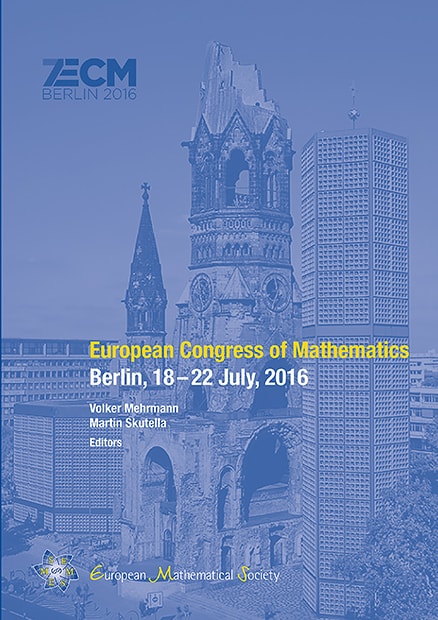Torsion homology growth in arithmetic groups
Nicolas Bergeron
Université Pierre et Marie Curie, Paris, France

A subscription is required to access this book chapter.
Abstract
Various recent works show that certain arithmetic groups -- that generalize the modular group -- can have `a lot' of torsion in their homology. Among these groups are the finite index (congruence) subgroups of or . In the latter case homology reduces to abelianization. In particular, for
one may ask about the structure of the finitely generated -module It has a finite torsion part and Akshay Venkatesh and I have conjectured that, as tends to among primes, we have:
More generally one may ask: \emph{How does the amount of torsion in the homology of an arithmetic group grow with the level ?} We propose a conjectural partial answer. This contribution presents ideas for how to attack this conjecture and discusses recent progress towards it. This topic interacts with more classical questions of geometry (analytic torsion, Gromov--Thurston norm, (higher) cost, rank and deficiency gradient \dots) and number theory (BSD conjecture, ABC conjecture~\dots). A big motivation is provided by (one of) Peter Scholze's recent breakthrough(s): \emph{very roughly} a mod torsion class in parametrizes a field extension whose Galois group is a subgroup of . Moreover, it is anticipated that there is a corresponding 'torsion Langlands program'.